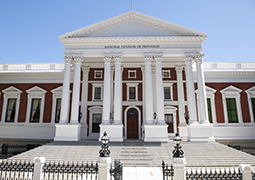
In a policy debate in the National Council of Provinces (NCOP), the Minister of Trade, Industry and Competition, Mr Ebrahim Patel, blamed Covid-19, a sluggish economy and recent natural disasters, coupled with a worldwide geo-political crisis and related economic matters that could lead to global recession for South Africa’s poor economic recovery.
This situation has revealed that our economic supply chain is vulnerable. Therefore, greater industrial resilience and an investment drive should feature prominently in policy making. South Africa needs a capable state that is agile enough to respond swiftly when hardships arise.
Mr Patel also lamented South Africa’s reliance on off-shore sources for our economic growth, mainly in the form of commodities to drive growth, as this makes us vulnerable to what is happening in the global commodity market.
He reported that the department’s revised industrial policy is informed by the District Development Model and aims to build infrastructure and promote innovation in order to bring development and create jobs. He assured the NCOP plenary that there has been progress in the automobile, food and health sectors and beneficiation in the sugar and clothing industries.
Looking at the 12-month financial period ahead, industrialisation will receive R22 billion in customised loans and packages and a R400 million Furnisher Growth Fund will be launched. R40 billion will be invested in localised products and the department aims to unlock R120 billion in investments from the private sector. This will include the promotion of township economy through the inception of industrial zones to boost their economic activities.
Partnership is required with provinces, Mr Patel maintained, to drive investment in the auto and pharmaceutical sectors. He also suggested that local and provincial governments should combined their budgets to drive industrialisation.
In July, the department will meet with Eskom, Transnet and other role players to discuss solutions for rail and energy problems.
Talking about various current investment projects, Minister Patel mentioned that Consol Glass Manufacturing is set to open a plant in Ekurhuleni and will invest R1.6 billion for its upkeep. Furthermore, a call centre will be established in Mitchells Plain in July that will employ youth from Mitchell’s Plain and Khayelitsha. A new steel manufacturing plant is also nearly complete in Thaba Nchu in Free State.
Weighing in on the debate, the Chairperson of the Select Committee on Trade and Competition, Mr Mandla Rayi, admitted that far too many South Africans still go to bed hungry. In addition, slow economic growth has done little to reduce unemployment and inequality. The setbacks brought about by Covid-19 require us to redouble our effort towards economic inclusion and he welcomed the department’s economic policy that is geared towards attracting and retaining investment. He also welcomed the R5 billion set aside for the economic reconstruction and recovery.
The implementation of the department’s policies is crucial to ensure no one is left behind. The colonial and apartheid economic legacies have saddled the state with structural impediments, but “the industrial policy seeks to deal with these structural impediments and in creating a better life for all,” he concluded.
The Eastern Cape Province’s member of Executive Committee on Economic Development, Environment and Tourism, Mr Mlungisi Mvoko, explained that the Eastern Cape Province is home to the automotive sector. However, vulnerability in the raw materials supply chain has impacted on jobs in the manufacturing sector. In the face of this, he welcomed the department’s planned responses to these challenges, including diversifying the supply chain and an economic policy that is aligned to a new thinking.
However, another Member of Parliament Mr Johan Londt said he was frustrated to see participants defending what is going on in South Africa today. He pointed out that South Africa’s economic crisis pre-dated the pandemic and has only now reached “boiling point”.
To support his point, he pointed out that 20 per cent of South Africans experienced food insecurity before the pandemic. This percentage has now grown to 40 per cent. “We are on a downward trend”, he charged. “If we had a capable and corruption-free state, we would ride these crises much more easily.”
Abel Mputing
1 June 2022

